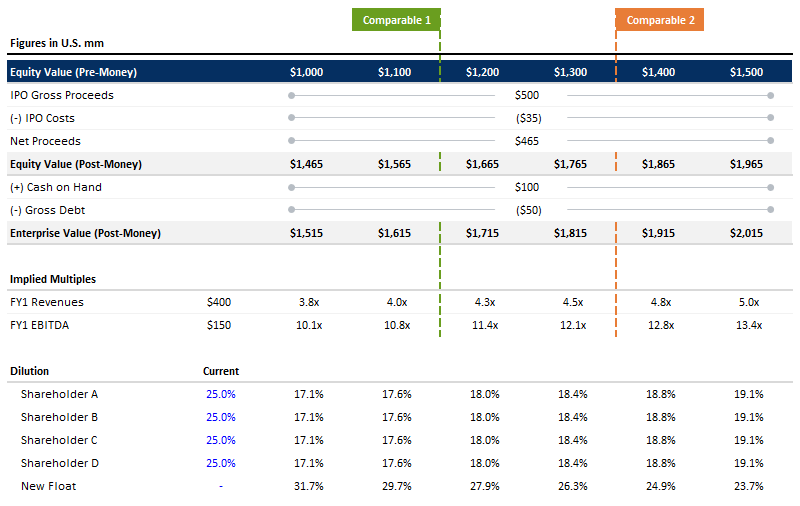Common M&A Mistakes That Cost Startups Millions (And How to Avoid Them)
- CFOcloser
- Mar 15
- 4 min read
Updated: Mar 25
Mergers and acquisitions (M&A) can change the game for startups, boosting their chances for revenue growth and market expansion. However, many startups unknowingly sabotage their success by falling into common traps. From inaccurate financials to poor post-acquisition planning, these missteps can cost millions. This article addresses prevalent M&A mistakes and provides essential strategies to navigate this complex process smoothly.
Inaccurate or Disorganized Financials
One major pitfall in M&A is having disorganized financial records. Inaccurate financials can derail negotiations and diminish trust among potential buyers. A study from Deloitte indicates that over 70% of failed M&A transactions stem from inadequate financial due diligence . If your financial documentation lacks clarity, it could lead to reduced offers or complete withdrawal from the deal.
Startups need to focus on meticulous record-keeping well ahead of an acquisition. This means maintaining accurate financial statements, including income statements, balance sheets, and cash flow statements. For instance, using accounting software like QuickBooks can streamline financial management and enhance accuracy.
It’s wise to conduct a financial audit before approaching potential buyers. This preemptive check can reveal and help address discrepancies, presenting a clear and compelling case for acquisition.
Overvaluing (or Undervaluing) the Business
Misestimating your company's worth is another frequent issue. It’s easy for startup founders to believe their company is more valuable than it really is. According to a survey by PitchBook, around 60% of startups overestimate their valuation. Overvaluation can drive away interested buyers, while undervaluation can result in lost potential revenue.
Understanding market conditions, engaging in comparison with similar companies, and applying discount cash flow models are vital to accurate valuation. Consulting financial advisors can enhance this process, adding an objective perspective.
Also, clearly articulating your value proposition is crucial. Create a strong story that connects your startup's performance, growth potential, and unique market niche to its valuation. This narrative can help mitigate valuation-related risks and make your business more attractive to potential acquirers.
Focusing Only on the Highest Offer
A common misconception in M&A is that the highest offer is the best one. Startups often overlook crucial terms accompanying offers. For example, a high cash offer may include restrictive policies that limit operational freedom after the acquisition.
When evaluating proposals, consider factors beyond just the financials. Look for potential buyers who understand and share your vision. Assess their market presence and resources, as a good fit can enhance future success.
During negotiations, consider creative deal structures that can optimize overall transaction value. Options like earn-outs or equity stakes can cater to immediate financial needs while supporting long-term growth.
Poor Negotiation Strategies
Negotiation is a critical element of successful M&A deals. Many startups approach negotiations with a sense of defensiveness, driven by the fear of losing the deal. This mindset can lead to missed opportunities for more favorable terms.
To improve your negotiation stance, prepare a list of priorities and desired outcomes before entering discussions. Engaging experienced advisors or legal professionals can also strengthen your position.
Building rapport with potential acquirers fosters trust and encourages open dialogue. As stated in a survey by KPMG, companies that engage meaningfully with potential buyers often negotiate better terms. Creating a collaborative environment helps explore mutually beneficial solutions.
Not Planning for Post-Acquisition Integration
Excitement over closing an M&A deal can overshadow the importance of post-acquisition planning. Overlooking integration can lead to significant challenges and diminish the value of the transaction. A study by McKinsey found that more than 50% of M&A deals fail to achieve their anticipated financial outcomes due to poor integration.
Cultural compatibility should be a focal point of your integration strategy. Conducting employee surveys or workshops can provide insights into how both organizations can merge effectively. Clearly communicating roles, expectations, and objectives is crucial throughout this process.
Establishing specific benchmarks will help monitor integration progress and highlight areas needing attention. A thoughtful integration approach can substantially increase the long-term value of the acquisition.
Legal and Compliance Oversights
Navigating legal and compliance issues can be daunting for startups. Oversights in this area can jeopardize a deal. For instance, failure to address intellectual property rights or regulatory compliance can cause significant setbacks.
Startups should prioritize thorough legal due diligence before initiating acquisition talks. Working with knowledgeable legal experts ensures all documentation is in order and reduces the risk of complications during negotiation.
Maintaining a solid intellectual property portfolio further strengthens your startup's appeal in M&A discussions. With proper legal measures, you can minimize risk and facilitate a smoother transaction process.
Ignoring Employee and Stakeholder Communication
Neglecting to communicate with employees and stakeholders during an M&A can lead to unrest and uncertainty, jeopardizing the success of the deal. According to a study by Towers Watson, 62% of M&A failures arise from poor employee engagement.
Implementing a clear communication strategy is vital throughout the M&A process. Transparency regarding motives, potential changes, and benefits can help ease anxieties.
Consider organizing regular town hall meetings, newsletters, or workshops to keep everyone informed and engaged. Involving key team members in discussions surrounding changes fosters ownership and commitment to the new direction, which aligns everyone with common objectives.
In Conclusion
The world of mergers and acquisitions is full of potential opportunities for startups seeking growth. However, many pitfalls can lead to substantial losses. By keeping financials organized, accurately valuing the business, emphasizing thoughtful negotiation, planning for integration, maintaining legal compliance, and communicating effectively, startups can navigate the M&A process more efficiently.
Recognizing these common M&A mistakes and how to avoid them empowers founders and stakeholders to maximize transaction value. With effective strategies in place, startups can better position themselves in the marketplace and reap the full benefits of a successful acquisition.



Comments